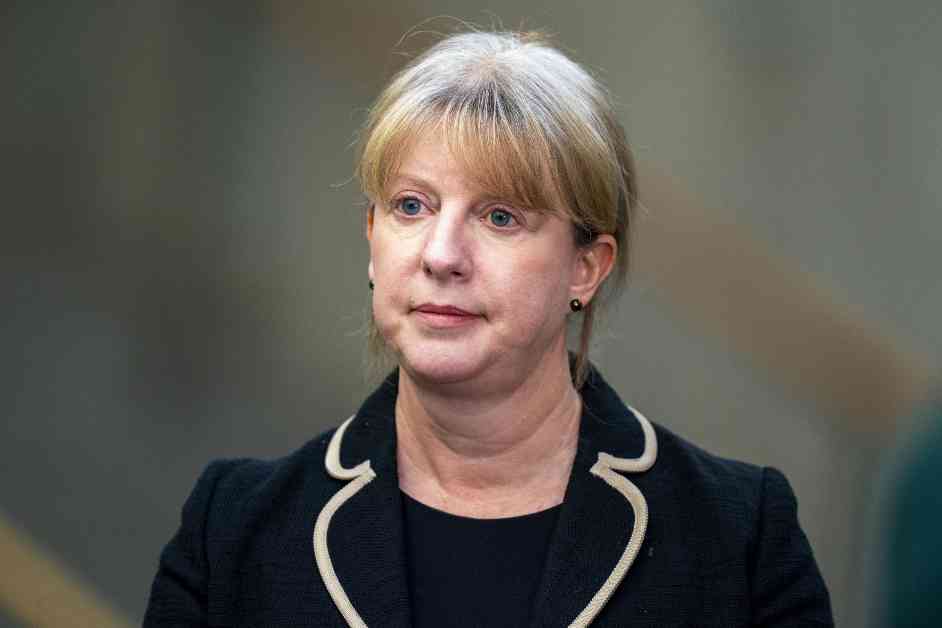Finance Secretary Shona Robison is facing a challenging situation in the upcoming Scottish Budget, as experts from the Fraser of Allander Institute have warned that she has limited room for manoeuvre despite the significant increase in cash from the UK Government. The Scottish Government is set to receive an additional £1.5 billion for the current financial year and £3.4 billion in 2025-26 as a result of the UK Budget, but the settlement remains tricky for Robison.
According to Joao Sousa, deputy director at the think tank, a large portion of the Scottish Government’s budget is allocated to key areas such as health, pay, social security, and grants to local government, leaving little flexibility to make significant changes. The lack of a medium-term financial strategy from the Scottish Government has made it challenging to determine the funding position for 2025-26, making it near impossible to make informed decisions.
The report from the Fraser of Allander Institute highlights the pressures that the Scottish Budget is likely to face, particularly with the public sector wage bill accounting for more than half of the Government’s day-to-day spending. Pay rises, such as the 5.5% increase for NHS workers agreed upon in 2024-25, will have a substantial impact on budgetary decisions. The report also points out that public sector workers in Scotland are paid more on average, posing additional challenges for budget management.
Decisions on pay, along with spending on areas like social security, where costs exceed the funding received from the UK Government, are putting additional pressure on the Scottish Government’s budget. When factoring in pressures from pay, increased national insurance contributions, and other commitments, there is limited additional funding available for next year. The think tank warns that if pay rises exceed expectations, the Scottish Government may need to take emergency action.
Despite efforts to tackle child poverty, the report notes that spending in this area remains relatively low compared to other budget allocations. Capital spending on child poverty reduction has actually decreased in real terms since 2019-20, raising concerns about the effectiveness of current strategies. The Scottish Government has emphasized its commitment to prioritizing funding to support the First Minister’s priorities, including economic growth.
In light of ongoing discussions with the Treasury regarding the reimbursement of over £700 million in employer national insurance contributions, uncertainty looms over the Scottish budget. The UK Government’s policy risks hindering economic growth and impacting public services, underscoring the importance of reaching a resolution before the budget presentation. As the Scottish Parliament navigates these challenges, MSPs are urged to unite in support of a budget that addresses key priorities and ensures financial stability for the year ahead.
































